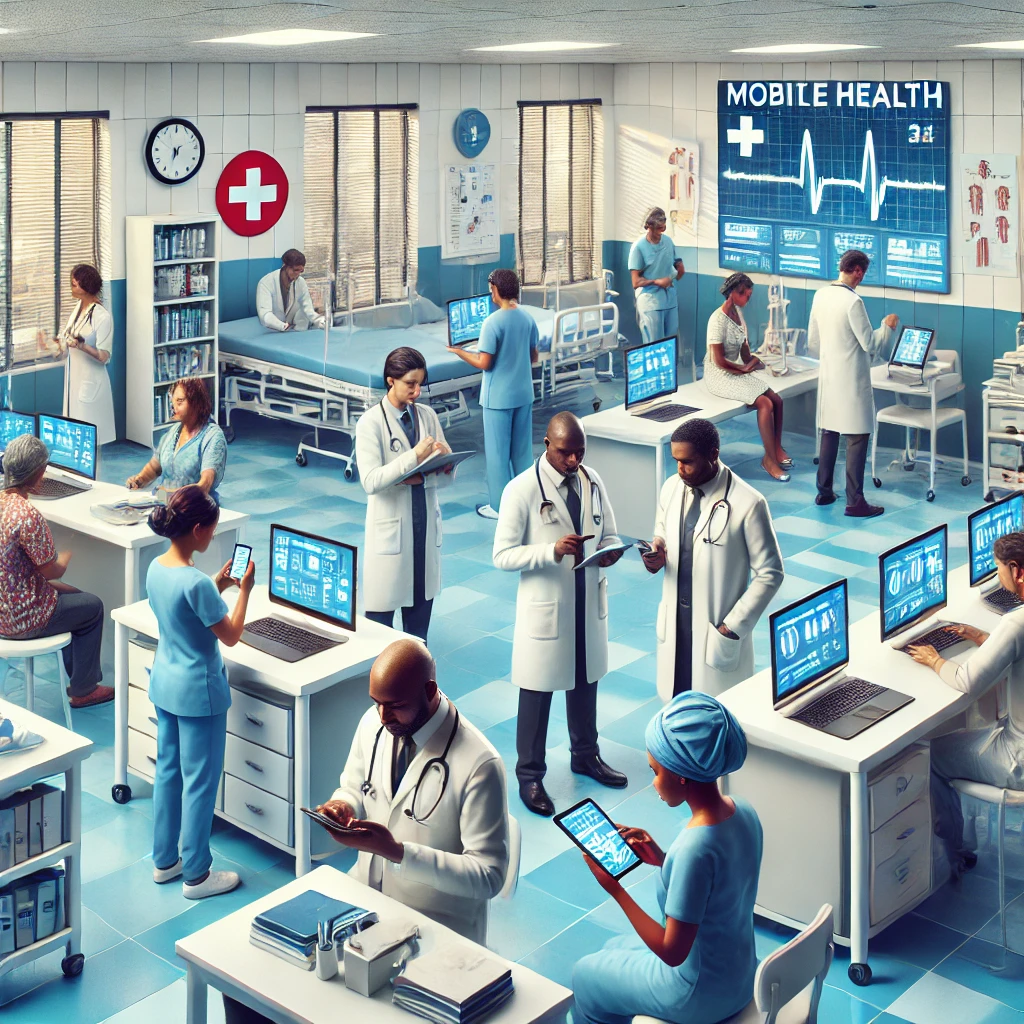Empowering Lagos Healthcare: Navigating Benefits and Barriers of mHealth Technologies
mHealth technologies in Lagos show potential to enhance healthcare access and efficiency, but barriers like skepticism, routine disruptions, and infrastructural challenges need addressing for successful implementation.

- Country:
- Nigeria
Mobile health (mHealth) technologies hold great potential to revolutionize healthcare delivery in low- and middle-income countries (LMICs) like Nigeria. In Lagos, a recent qualitative study conducted by researchers from the Norwegian University of Science and Technology (NTNU), Lagos State University Teaching Hospital (LASUTH), and Picterus AS aimed to understand healthcare workers' (HCWs) perceptions of mHealth technologies in public health facilities. The study involved 26 HCWs, including doctors, nurses, and community health extension workers, from three public health facilities. The goal was to explore both the perceived benefits and barriers to the adoption and utilization of mHealth solutions, using the Picterus app as a case study.
Empowering Patients Through Enhanced Access to Information
The study found that HCWs recognized several significant benefits of mHealth technologies. One of the primary advantages highlighted was the enhancement of access to health-related information. mHealth technologies enable patients to access vital health information quickly and conveniently, regardless of their location. This is particularly beneficial in remote areas where healthcare facilities are scarce and difficult to reach. The ability to receive health information through mobile devices can empower patients to make informed health decisions, potentially improving health outcomes and reducing mortality rates.
Revolutionizing Patient-Provider Communication
Improved patient-provider communication was another benefit cited by the participants. mHealth technologies facilitate online consultations, allowing patients to consult with healthcare providers without needing to visit a healthcare facility physically. This not only saves time for both patients and providers but also reduces the burden on healthcare facilities. For example, during the COVID-19 pandemic, mHealth solutions enabled continuous patient care while minimizing the risk of virus transmission. The use of mobile phones for healthcare consultations ensures that more people, including those in underserved areas, have access to medical advice and services.
Time-Saving Innovations in Healthcare
Time-saving is another critical advantage of mHealth technologies. Traditional healthcare processes often involve time-consuming steps, such as laboratory tests and follow-up visits. mHealth apps like Picterus can streamline these processes by providing quick and accurate assessments. Picterus, for instance, uses digital images to estimate serum bilirubin levels in newborns, enabling early detection and treatment of neonatal jaundice. This reduces the time required for blood tests and allows for timely medical interventions, which can be life-saving.
Overcoming Barriers to mHealth Adoption
Despite these benefits, the study identified several barriers that limit the adoption and utilization of mHealth technologies. One of the primary concerns was the disruption of routine healthcare practices. HCWs feared that reliance on mHealth technologies could make their work less intellectually challenging and reduce their clinical skills. They worried that automated processes might replace the need for in-depth medical knowledge and critical thinking, leading to a deskilling effect. Additionally, some HCWs expressed discomfort with transitioning from traditional paper-based methods to digital platforms, citing difficulties in adapting to new technologies.
Skepticism about the accuracy and reliability of mHealth tools also emerged as a significant barrier. HCWs emphasized the importance of trust in adopting new technologies. Some participants were wary of mHealth applications due to past experiences or reports of inaccuracies in other digital health tools. This skepticism was particularly pronounced regarding diagnostic applications, where errors could have serious implications for patient care. The participants stressed the need for rigorous validation and calibration of mHealth technologies in the local context to ensure their accuracy and reliability.
Information overload was another concern highlighted by the study. The vast amount of health information accessible through mobile devices can overwhelm patients, leading to anxiety and potential misinformation. HCWs reported instances where patients, after conducting their own online research, became overly anxious or misinformed about their health conditions. This underscores the need for healthcare providers to guide patients in navigating and interpreting online health information effectively.
Infrastructure challenges, such as power and network failures, were also cited as barriers to mHealth adoption. Nigeria faces significant issues with electricity supply and internet connectivity, which are critical for the effective use of mHealth technologies. Frequent power outages and poor network coverage can disrupt the functionality of mHealth applications, making them unreliable in certain settings. This infrastructural inadequacy hinders the seamless integration of digital health solutions into the healthcare system.
To overcome these barriers and enhance the adoption of mHealth technologies, several measures need to be taken. Engaging HCWs in the development and implementation of mHealth solutions is crucial. Their insights and feedback can help create tools that are user-friendly, reliable, and suited to the local context. Building trust in mHealth technologies through rigorous testing, validation, and continuous improvement is essential. Addressing infrastructural challenges by investing in stable power and internet infrastructure will also support the effective deployment of mHealth solutions.
While mHealth technologies offer substantial benefits for improving healthcare delivery in Lagos, addressing the concerns and needs of HCWs is vital for their successful implementation and utilization. By tackling barriers related to routine practices, trust, information overload, and infrastructure, mHealth can become a transformative tool in enhancing healthcare access and outcomes in Nigeria.
- FIRST PUBLISHED IN:
- Devdiscourse










